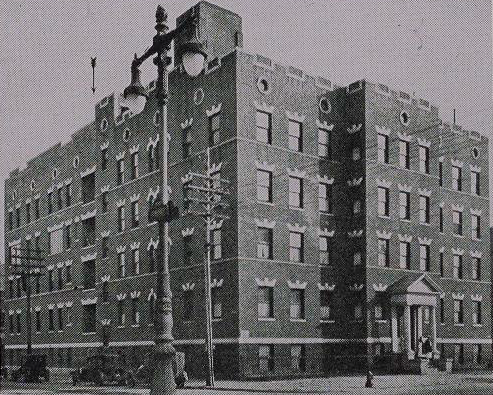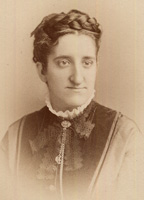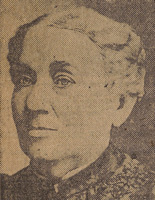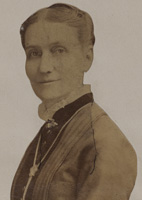Early Women in Homeopathy: A Resource Guide
- Chrissie Perella, Archives Assistant

Woman's Southern Homeopathic Hospital, 739 S Broad Street, Philadelphia. Founded 1896.
Just like any other profession in the 19th and early 20th centuries, women in medicine struggled for the right to formal education and recognition as professionals.Even in the field of homeopathy, which was considered ‘eclectic,’ early women physicians had to put forth a great deal of effort if they wanted to be acknowledged as their male counterparts were.In Philadelphia, the Female Medical College of Pennsylvania (later Woman’s Medical College of Pennsylvania) was the first school to grant women medical degrees; it was founded in 1850.Several other medical colleges which awarded degrees to women soon followed, in Boston, New York, and Chicago.
However, formal homeopathic training was even harder to come by – there were only two schools by 1870, one in New York and one in Cleveland, which allowed women to study homeopathy and earn degrees or certificates.At the Homeopathic Medical College of Pennsylvania (which merged with Hahnemann Medical College of Philadelphia in 1871), women were repeatedly turned down for admission, although they were granted the right to attend lectures in 1865 – provided they sat behind screens.
It was common practice for women in the early days of homeopathy to receive medical degrees from schools such as the Woman’s Medical College of Pennsylvania (Philadelphia) or New England Female Medical College (Boston), and then move to Chicago, Cleveland, Baltimore, or Boston, where they could receive formal training in homeopathic medicine.
We have been working on compiling a list of resources from our collections – and some from elsewhere – about the brave early women homeopaths.You can find our subject guide at Early Women in Homeopathy Resources. And here’s a sneak peek of three women homeopaths who practiced in the Philadelphia area:

Dr. Mary Branson
Mary Branson, Woman’s Medical College of Pennsylvania, 1873
Mary Branson studied homeopathy for several years after receiving her degree from Woman’s Med, although it is not known where.She was a founding member and the president of the Woman’s Southern Homeopathic Hospital. She was also a member of the American Institute of Homeopathy, the Pennsylvania State and Philadelphia County Homeopathic Medical Societies, and the Woman’s Medical Club.

Dr. Harriet Schneider French
Harriet Schneider French, Pennsylvania, 1864
Harriet French was born in Philadelphia and received her medical degree in 1864. She was the president of the Women’s Christian Temperance Union of Philadelphia as well as president of the Women’s Homeopathic Society of Pittsburgh. She was also on the Board of Censors for the Homeopathic Medical Society of Pennsylvania. Harriet French, along with Harriet Judd Sartain and Mercy Jackson, was one of the first women to be admitted to the American Institute of Homeopathy in 1871.

Dr. Harriet Judd Sartain
Harriet Judd Sartain, Philadelphia; Eclectic Medical Institute (Cincinnati, Ohio), 1854
Harriet Judd Sartain was born in Connecticut and studied medicine in both Philadelphia and Cincinnati.She married Samuel Sartain (the son of the famous engraver, John Sartain) not long after graduating from Cincinnati and moved to Philadelphia.She was the first woman member of the Homeopathic Medical Society in 1870, and in 1871 she was elected to the State Homeopathic Society.Harriet Sartain, along with Harriet French and Mercy Jackson, was one of the first women to be admitted to the American Institute of Homeopathy in 1871.